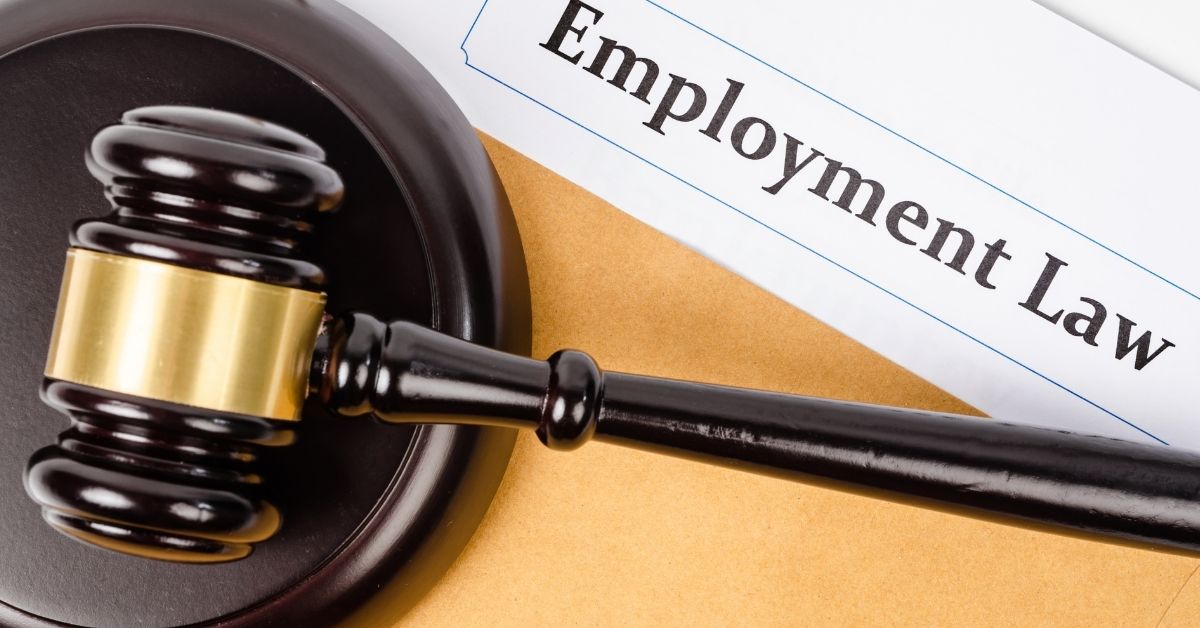5 Types of Personal Injury Compensation You May Qualify for

Sustaining a personal injury can significantly disrupt life’s rhythm. Causing not just physical pain but also emotional and financial turmoil. Amidst the chaos of recovery, understanding the various types of compensation available becomes crucial. These personal injury compensations aren’t just about covering medical bills. They extend to acknowledging the intangible toll the injury takes. From reimbursing medical expenses to compensating for lost wages, pain, suffering, and emotional distress, the avenues for restitution after a personal injury are diverse. This article explores five types of personal injury compensation you might be eligible for. Shedding light on the intricate process of reclaiming stability and justice following an injury.
Medical Expenses Compensation
Navigating the aftermath of a personal injury encompasses not only the physical and emotional healing process but also the financial repercussions that follow. Among the vital components of seeking compensation, covering medical expenses stands as a fundamental necessity. In the wake of an injury, the burden of medical bills can be overwhelming. Medical bills extend beyond hospital fees to encompass various treatments, medications, and rehabilitative services. At B|B Law Group, a group of Los Angeles Personal Injury Lawyers, we are here to shed light on what these expenses entail and guide individuals on the necessary steps to claim rightful reimbursement for the incurred medical costs.
What Medical Expenses May Entail
Medical expenses stemming from a personal injury encompass a broad spectrum of costs. These expenses exceed the immediate hospitalization bills and encompass a multifaceted range of essential services and treatments. They include emergency medical care, surgical procedures, diagnostic tests (such as X-rays or MRIs), specialist consultations, physical therapy sessions, prescription medications, assistive devices or medical equipment, home health care, and even psychological counseling. Beyond these tangible costs, medical expenses also encapsulate the logistical expenses associated with transportation to and from medical facilities. The total of these expenses illustrates the comprehensive nature of what medical treatment and rehabilitation after an injury may entail. Illuminating the substantial financial burden often faced by those seeking recovery and healing.
How to Claim Medical Expenses
When pursuing compensation for medical expenses after a personal injury, enlisting the expertise of a seasoned personal injury lawyer can significantly streamline the process. A legal professional experienced in such cases comprehensively evaluates your medical records, bills, and treatment history to build a robust claim. They navigate the complexities of insurance negotiations, ensuring that all pertinent expenses are accounted for and accurately valued. A skilled attorney provides invaluable guidance in gathering and organizing necessary documentation. Including, liaising with medical providers, and presenting a compelling case to maximize the compensation rightfully owed to cover your medical expenses. Their adeptness in legal proceedings offers you the best chance of a favorable outcome in securing the compensation you deserve.
Lost Wages and Income Replacement
Lost wages and income replacement stand as crucial facets of compensation for individuals grappling with a personal injury’s aftermath. When injury-induced incapacity prevents you from working, it translates into an immediate financial strain. This compensation encompasses both temporary and permanent loss of income. Acknowledging the disruption to your livelihood. Claiming compensation for lost wages necessitates providing evidence, such as pay stubs, tax records, and employer statements verifying the impact of the injury on your ability to work. Seeking this compensation acknowledges the financial distress caused by the injury, aiming to alleviate the burden by ensuring you receive rightful restitution for the income lost due to your injury.
Differences Between Temporary and Permanent Loss of Income
Temporary loss of income refers to the time you’re unable to work during recovery, while permanent loss involves an ongoing inability to perform your job. Both types warrant compensation, but the processes and amounts may differ.
How to Prove Lost Wages
Proving lost wages involves presenting evidence such as pay stubs, tax records, and a statement from your employer confirming your inability to work or reduced hours due to the injury.
How to Claim Lost Wages and Income
Claiming lost wages and income with the guidance of a personal injury lawyer can substantially enhance the efficiency and success of your compensation pursuit. A skilled attorney proficient in personal injury cases carefully assesses the impact of your injury on your ability to work and earn income. Next, they gather evidence to validate your claim, collecting pay stubs, tax records, employment contracts, and statements from your employer verifying the duration and extent of your inability to work due to the injury. Additionally, a skilled attorney can accurately calculate the lost earnings. Their expertise maximizes the likelihood of securing the full compensation owed.
Pain and Suffering Compensation
Pain and suffering compensation acknowledges the non-financial toll a personal injury takes. It recognizes the intangible, yet profound, impact on an individual’s life. Beyond medical bills and lost wages, this compensation accounts for the physical pain, emotional distress, and diminished quality of life resulting from the injury. It seeks to address the suffering as part of the injury’s aftermath. Calculating compensation for pain and suffering involves intricate assessments. Pursuing this compensation often requires legal expertise to navigate the complexities of proving and valuing these subjective but substantial aspects of the injury.
Factors Influencing Compensation for Pain and Suffering
Compensation for pain and suffering hinges on various factors. The severity of the injury itself plays a pivotal role, with more severe injuries typically resulting in higher compensation. The duration of recovery and treatment, as well as the resultant physical pain and emotional distress endured during this period, significantly influence the compensation amount. Additionally, the long-term consequences on one’s quality of life, such as permanent disabilities or chronic pain, are crucial in determining the compensation for pain and suffering.
How to Claim Pain and Suffering in a Lawsuit
Filing a lawsuit for pain and suffering compensation involves legal procedures and often requires expert testimony to substantiate your claim. A skilled attorney proficient in personal injury cases can help you explore a claim involving pain and suffering.
Disability Compensation
Disability compensation serves as a critical avenue of support for individuals grappling with the lasting repercussions of a personal injury. This compensation acknowledges the impact of the injury on an individual’s ability to perform daily activities, work, or engage in regular life routines. It revolves around the assessment of the injury’s severity, resulting impairments, and their impact on the individual’s capacity to function. Disability ratings, often determined by medical professionals, categorize the extent of the impairment. These ratings can range from temporary limitations to permanent disabilities.
How Disability Rating Impacts Compensation
The compensation amount is intricately linked to this disability rating, with higher ratings correlating to more significant compensation.
The Process of Applying for Disability Compensation
Applying for disability compensation involves thorough documentation of your injury. Including medical reports, and it often requires legal assistance to navigate the complex procedures involved.
Emotional Distress Compensation
Emotional distress compensation acknowledges the psychological toll that a personal injury can impose on an individual’s mental well-being. This compensation aims to address the intangible yet impactful consequences of the injury. It encompasses emotional anguish, anxiety, depression, trauma, and mental suffering experienced because of the incident. Proving emotional distress can be challenging. It is subjective, often requiring expert testimony, or evidence from mental health professionals to substantiate the claim. Courts evaluate the severity and impact of the emotional distress on the individual’s life to determine the compensation amount. Seeking this compensation typically involves legal expertise. They can help navigate the complexities of demonstrating and valuing these subjective aspects of the injury. Ensuring that the emotional repercussions of the incident are recognized and compensated appropriately.
Examples of Emotional Distress Compensation
Examples of emotional distress compensation often stem from traumatic events that have caused significant psychological harm. These may include instances like severe accidents resulting in post-traumatic stress disorder (PTSD), emotional trauma from medical malpractice, witnessing a traumatic event leading to anxiety or depression, or sustained emotional suffering due to a deliberate infliction of emotional distress.
Challenges in Claiming Emotional Distress Compensation
Proving emotional distress can be challenging as it is subjective, often requiring expert testimony, psychiatric evaluations, or evidence from mental health professionals to substantiate the claim. Courts evaluate the severity and impact of the emotional distress on the individual’s life to determine the compensation amount. Seeking this compensation typically involves legal expertise to navigate the complexities of demonstrating and valuing these subjective aspects of the injury, ensuring that the emotional repercussions of the incident are recognized and compensated appropriately.
Contact a Los Angeles Personal Injury Lawyer Today
At B|B Law Group, our highly rated Los Angeles Personal Injury Lawyers specialize in securing rightful compensation for individuals suffering from personal injuries. Schedule a free consultation today and remember, if we don’t win, you don’t pay. Don’t bear the burden alone; let us fight for the compensation you deserve.


